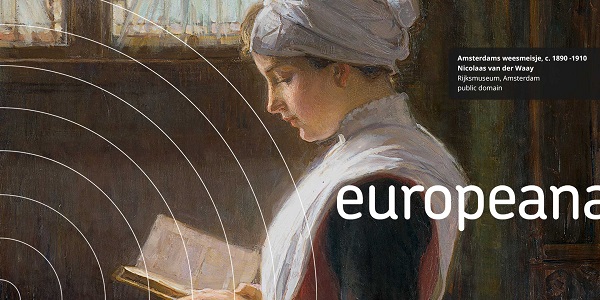Hear from The IPR community: Gordon McKenna tells us about SPECTRUM

We have created a small IPR community of aggregators within the DSI2 project who share best practice and draw on their experience when managing IPR in their collections and archives. Central to being able to benefit from new ways to share cultural heritage online, it is important that the underlying procedures and standards which enable access to users remain relevant. Here, Gordon McKenna tells us about SPECTRUM and practical rights management procedures.
The Collections Trust is the UK-based knowledge centre for the management and use of collections and technology in museums, archives and libraries. SPECTRUM, developed by The Collections Trust, is the UK Museum Collections Management Standard and set outs key museum procedures such as acquisitions and the information required to support these procedures. First developed in the early 1990s, SPECTRUM has evolved with participation of practitioners from all parts of the cultural heritage sector throughout the UK, including national, local and volunteer-run museums. The aim was to reach a shared understanding of how to best manage collections practically, and this has been proven to work across all areas of the cultural heritage sector.
Our standards are used internationally in several countries, including Belgium, the Netherlands, Germany, Norway, Sweden, Portugal and Brazil to help make cultural heritage accessible.

Making it easier to manage and share cultural heritage
As well as written collections management procedures, our CultureGrid platform is a central point to aggregate some three million object records representing UK collections. It makes them available to Europeana and other digital platforms. This includes the Collections Trust led Europeana Food and Drink project. We are working on sustainable ways to link and share collections online within the emerging UK digital culture strategy and the Europeana platform. Ways to standardise, manage and share cultural heritage are embedded in Europeana’s models of best practice including the Europeana Publishing Framework and the Europeana Licensing Framework. Having a streamlined approach for managing collections and in this case rights at a national level will help reinforce the importance of understanding the copyright status of collections and archives, and the role it plays in being able to share cultural heritage online.
Making it easier to manage rights for museum activities
After more than thirty years experience advising organisations on how to best manage collection information and make it meaningful, I have come to the conclusion that there are two states of mind when faced with managing rights; little awareness of what copyright is and why it is important in the context of being able to share cultural heritage; and inertia once they realise that what they did in the past with their collections may have legal implications.
SPECTRUM’s Rights Management Procedure is designed to overcome these perceptions and support practitioners with their day to day activities. While the first two versions of SPECTRUM (1994 and 1997) didn’t feature a separate procedure for rights management, a new Rights management procedure was introduced in 2005 for the third edition.
In addition to the updated procedure, SPECTRUM also supports the way the rights information metadata is managed in an organisation’s collections management system. This can include information about the object itself (such as the type; title; material; dimensions; subject of intellectual and visual content), the connections to events during an item’s existence, and its connections to persons, organisations, and places. SPECTRUM also defines which units of information should be supported by terminologies or authority files, such as the object names, styles, materials, and actors.
We will launch an updated version in June 2017, the fifth version will feature three sections: researching rights, obtaining licences or permissions you do not have (Rights in), and granting rights and permissions to others (Rights out).
More information about SPECTRUM can be found online: collectionstrust.org.uk/spectrum/
